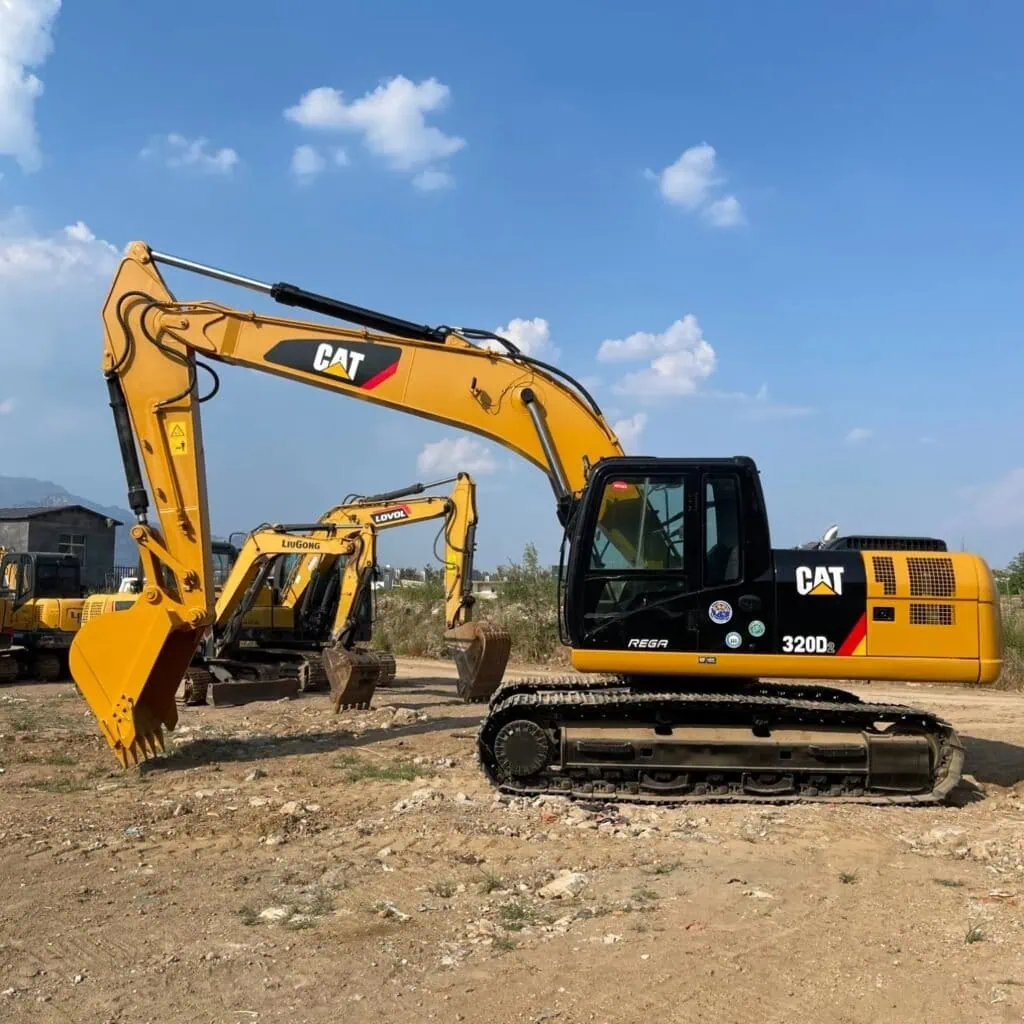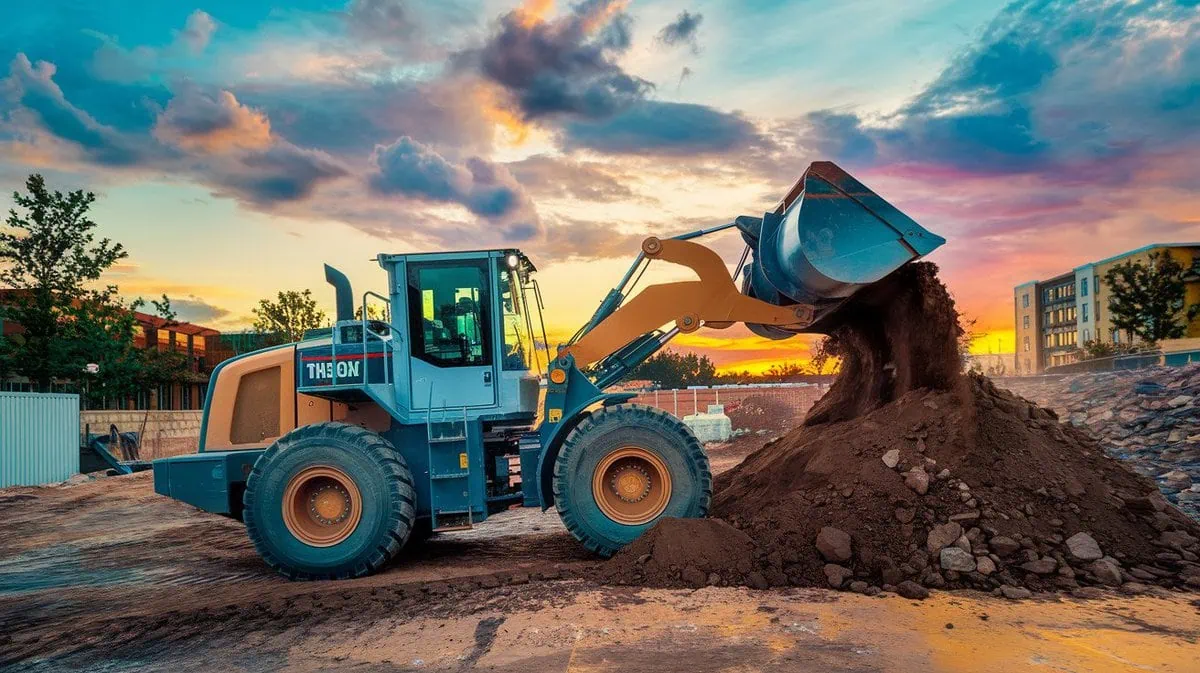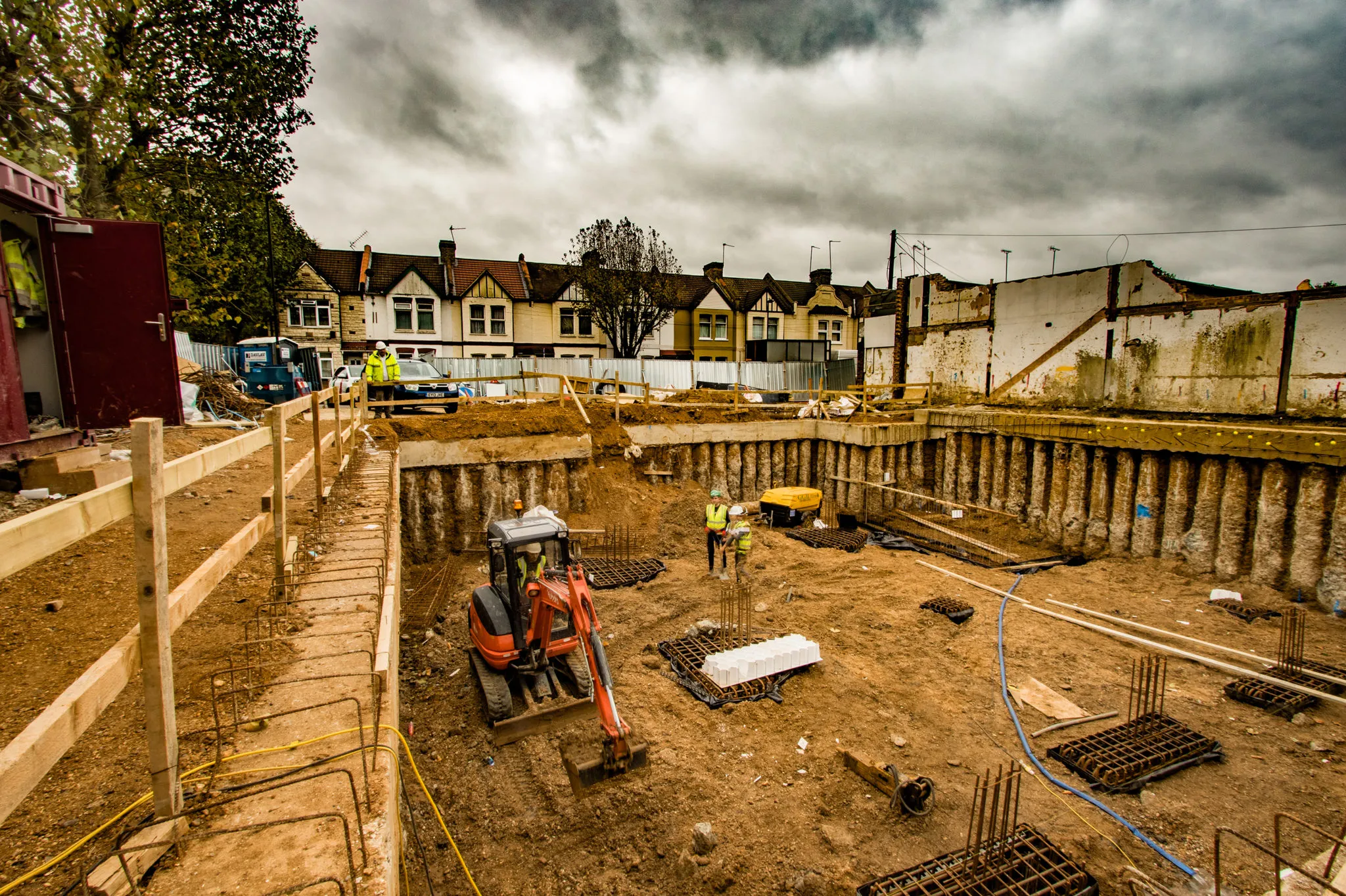تبحث لشراء حفارة مستعملة؟ قبل اتخاذ قرار ، من الضروري فهم التكاليف المعنية. في هذه المقالة ، سوف نستكشف أسعار الحفريات الصغيرة ونقدم رؤى قيمة لتكاليف الحفارة المستخدمة. سواء كنت محترفًا في البناء أو من عشاق DIY ، فإن معرفة ما يمكن توقعه من حيث التسعير يمكن أن يساعدك في اتخاذ خيار مستنير.
على الرغم من عدم توفير صوت العلامة التجارية والكلمات الرئيسية المحددة ، من المهم استخدام نغمة مفيدة وجذابة. من خلال تلبية الاحتياجات المحددة للجمهور - شراء حفارة مستعملة - وتقديم معلومات قيمة عن التكاليف ، تهدف هذه المقدمة إلى جذب انتباههم من البداية. سواء أكان مشروعًا سكنيًا صغيرًا أو موقع بناء واسع النطاق ، فإن فهم عوامل التسعير للحفارات الصغيرة أمر بالغ الأهمية لأي شخص يحتاج إلى هذه المعدات. دعنا نتعرض للتفاصيل ونكشف الرؤى التي تحتاجها لاتخاذ قرار الاستثمار الصحيح.
مزايا شراء حفارة مستعملة
يمكن أن يوفر شراء حفارة مستعملة العديد من المزايا ، خاصة للأفراد أو الشركات التي تسعى إلى إدارة التكاليف بفعالية. واحدة من أهم الفوائد هي وفورات التكاليف المرتبطة بشراء المعدات المملوكة مسبقًا. غالبًا ما تأتي الحفارات الجديدة بسعر كبير ، والتي يمكن أن تكون استثمارًا كبيرًا للمقاولين الصغار أو عشاق DIY. في المقابل ، يمكن أن تكون الحفارات المستخدمة أكثر بأسعار معقولة ، مما يتيح للمشترين تخصيص ميزانيتهم تجاه الجوانب الأساسية الأخرى لمشاريعهم ، مثل المواد أو العمالة. يمكن أن تكون هذه المرونة المالية بمثابة تغيير للألعاب لأولئك الذين يعملون على هوامش ضيقة أو ميزانيات محدودة.
ميزة أخرى في اختيار حفارة مستعملة هي توفر اختيار أوسع. غالبًا ما يكون سوق المعدات المستخدمة متنوعًا ، حيث يقدم العديد من العلامات التجارية والنماذج والمواصفات. يمكّن هذا التنوع المشترين من العثور على آلة تلبي احتياجاتهم الخاصة بشكل وثيق دون المساس بالوظائف. العديد من الحفارات المستخدمة تأتي مع تاريخ من الأداء الموثوق به ولا يزال بإمكانهم تقديم نتائج مثيرة للإعجاب على مواقع العمل. نتيجة لذلك ، يمكن للمشترين العثور على آلة تتماشى تمامًا مع متطلبات المشروع الفريدة ، مما يعزز إنتاجيتهم الإجمالية.
بالإضافة إلى ذلك ، فإن شراء حفارة مستعملة غالبًا ما يعني أن الاستهلاك الأولي قد حدث بالفعل. يمكن أن تفقد المعدات الجديدة جزءًا كبيرًا من قيمتها خلال السنوات القليلة الأولى من الملكية ، في حين امتصت الآلات المستخدمة بالفعل هذا الاستهلاك. لا يسمح هذا الموقف للمشترين فقط باكتساب معدات عالية الجودة بسعر أكثر معقولًا ، ولكن هذا يعني أيضًا أنهم أقل عرضة لمواجهة خسائر حادة في حالة قرار إعادة بيع المعدات في المستقبل. هذا الجانب من القيمة طويلة الأجل يجعل الحفارات المستخدمة خيارًا جذابًا للعديد من المشترين.

العوامل التي تؤثر على تكاليف الحفارة المستخدمة
تلعب العديد من العوامل دورًا مهمًا في تحديد التكاليف المرتبطة بالحفارات المستخدمة. واحدة من أبرز العوامل هي عصر الماكينة. بشكل عام ، تميل الحفارات القديمة إلى أن تكون أقل تكلفة من الأحداث الأحدث ، ولكن هذا يأتي مع مفاضلة من حيث التكنولوجيا والكفاءة. مع عصر الآلات ، قد تتطلب المزيد من الصيانة والإصلاحات ، والتي يمكن أن تضيف إلى تكاليف طويلة الأجل. لذلك ، في حين أن شراء نموذج أقدم قد يوفر المال مقدمًا ، يجب على المشترين النظر بعناية في النفقات المستمرة المحتملة المرتبطة به.
حالة الحفارة هي عامل مهم آخر يؤثر على سعره. الآلات التي تم صيانتها بشكل جيد وخدمة عادة ما تكون بشكل منتظم أسعارًا أعلى من تلك التي لديها علامات مرئية للبلى. عند تقييم حفارة مستعملة ، من الضروري فحص حالته المادية ، بما في ذلك النظام الهيدروليكي والمسارات وأداء المحرك. يمكن أن يساعد الفحص الشامل للمشترين في تحديد أي مشكلات محتملة يمكن أن تؤثر على أداء الماكينة وعمرها ، مما يؤثر في نهاية المطاف على قرار الشراء.
يلعب الطلب على السوق أيضًا دورًا مهمًا في تحديد سعر الحفارات المستخدمة. في أوقات الطلب المرتفع ، قد ترتفع الأسعار بسبب المنافسة بين المشترين. على العكس ، خلال فترات انخفاض الطلب ، قد يجد المشترين أنفسهم في وضع إيجابي للتفاوض على أسعار أقل. يمكن أن تؤثر البقاء على اطلاع على اتجاهات السوق والتقلبات بشكل كبير على توقيت عملية الشراء ، مما يسمح للمشترين بالاستفادة من الظروف المواتية وتأمين أفضل صفقة ممكنة.

فهم مختلف أنواع الحفارات
تأتي الحفارات في أنواع مختلفة ، كل منها مصمم لمهام وتطبيقات محددة. تحتفظ الحفريات الصغيرة بشكل خاص بالمشاريع الأصغر ، مثل المناظر الطبيعية والبناء السكني ومواقع الوصول الضيقة. تشتهر هذه الآلات المدمجة بخفة الحركة والتعدد الاستخدامات ، مما يجعلها مثالية للمهام التي تتطلب الدقة والقدرة على المناورة. يمكن أن يساعد فهم الأنواع المختلفة المتاحة للمشترين على اختيار الحفارة المناسبة لاحتياجاتهم ، مما يضمن اتخاذ قرار مستنير.
نوع آخر شائع هو الحفارة القياسية أو الكاملة الحجم ، والتي تستخدم عادة لمشاريع البناء الأكبر. تتوافق هذه الآلات على قوة وقدرة أكبر ، مما يجعلها مناسبة للمهام الشاقة مثل حفر الأسس والخنادق والهدم. في حين أن الحفارات القياسية غالبًا ما تكون أغلى من نظرائها المصغرة ، إلا أنها توفر الأداء والقدرات المحسنة ، خاصة في العمليات الكبيرة. يجب على المشترين تقييم متطلبات المشروع الخاصة بهم لتحديد ما إذا كان الحفار المصغر أو القياسي يتوافق بشكل أفضل مع احتياجاتهم.
أخيرًا ، هناك حفارات متخصصة ، مثل الحفارات الطويلة والحفارات ذات العجلات ، المصممة لتطبيقات محددة. تعد الحفارات الطويلة المدى مثالية للمشاريع التي تتطلب الحفر على مسافات ممتدة ، في حين أن الحفارات ذات العجلات أكثر ملاءمة للأسطح المعبدة والبيئات الحضرية. إن فهم هذه الفروق يساعد المشترين على اتخاذ قرارات مستنيرة حول نوع الحفارة التي ستقدم أفضل ما يخدم أهداف مشروعهم ، مما يؤدي في نهاية المطاف إلى نتائج أفضل وزيادة الرضا عن شرائهم.
نصائح لشراء حفارة مستعملة
عندما يتعلق الأمر بشراء حفارة مستعملة ، يمكن أن تساعد العديد من النصائح المشترين على اتخاذ قرارات مستنيرة وتجنب المزالق المحتملة. أولاً وقبل كل شيء ، إجراء بحث شامل أمر ضروري. يجب على المشترين أن يتعرفوا على علامات تجارية ونماذج ومواصفات مختلفة لفهم ما يمكن توقعه من حيث الأداء والموثوقية. يمكن قراءة المراجعات والبحث عن توصيات من محترفي الصناعة تقديم رؤى قيمة في أفضل الخيارات المتاحة في السوق.
هناك خطوة حاسمة أخرى وهي إجراء فحص شامل للحفارة قبل إجراء عملية شراء. يجب أن يتضمن هذا الفحص التحقق من الحالة العامة للجهاز ، بما في ذلك نظامه الهيدروليكي والمسارات وأداء المحرك. يجب على المشترين أيضًا الاستفسار عن تاريخ صيانة الماكينة ، بما في ذلك أي إصلاحات أو خدمات يتم إجراؤها. يمكن أن يوفر سجل الصيانة الموثق جيدًا طمأنة حول الرعاية السابقة للجهاز ومساعدة المشترين على قياس عمرها المتبقي.
أخيرًا ، من الضروري النظر في سمعة الوكيل أو البائع عند شراء حفارة مستعملة. غالبًا ما يوفر البائعون ذوو السمعة الضمانات أو الضمانات التي تحمي المشترين من المشكلات المحتملة بعد البيع. يمكن أن يؤدي الانخراط مع التجار الموثوقين أيضًا إلى تعزيز تجربة الشراء الإجمالية ، حيث من المرجح أن تكون شفافة حول تاريخ الجهاز وحالته. يمكن أن يؤدي بناء علاقة مع بائع موثوق إلى صفقات أفضل ودعم في احتياجات المعدات المستقبلية.

حساب التكلفة الإجمالية لامتلاك حفارة مستعملة
إن فهم التكلفة الإجمالية لامتلاك حفارة مستعملة يتجاوز سعر الشراء الأولي. يجب على المشترين النظر في العوامل المختلفة التي تسهم في النفقات المستمرة ، بما في ذلك الصيانة والتأمين والوقود والتكاليف التشغيلية. تعد الصيانة المنتظمة أمرًا بالغ الأهمية للحفاظ على حفارة في حالة عمل جيدة ، وغالبًا ما تتضمن فحوصات روتينية وتغييرات في الزيت والإصلاحات المحتملة. يمكن أن تساعد ميزانية هذه النفقات في منع أعباء مالية غير متوقعة.
التأمين هو عامل حاسم آخر في التكلفة الإجمالية للملكية. اعتمادًا على حجم وقيمة الحفارة ، يمكن أن تختلف أقساط التأمين بشكل كبير. يجب على المشترين البحث عن مقدمي تأمين مختلفين لإيجاد بوليصة تلبي احتياجاتهم مع بقاء ميسورة التكلفة. بالإضافة إلى ذلك ، قد يتطلب بعض المقرضين تغطية تأمينية كجزء من اتفاقيات التمويل ، مما يجعل من الضروري أن نضع هذه التكلفة في الميزانية الإجمالية.
أخيرًا ، لا ينبغي التغاضي عن استهلاك الوقود وتكاليف التشغيل. يمكن أن تختلف الحفارات في كفاءة استهلاك الوقود ، والتي يمكن أن تؤثر بشكل كبير على النفقات الإجمالية ، خاصة بالنسبة لأولئك الذين يستخدمون الجهاز بشكل متكرر. يمكن أن يساعد فهم كمية الوقود التي يستهلكها الحفارة وتقدير الاستخدام للمشترين على قياس التكاليف المستمرة التي قد يتحملونها أثناء التشغيل. من خلال النظر بعناية في كل هذه العوامل ، يمكن للمشترين إنشاء ميزانية شاملة تعكس بدقة التكلفة الإجمالية لامتلاك حفارة مستعملة.
المفاهيم الخاطئة الشائعة حول أسعار الحفارة المستعملة
توجد العديد من المفاهيم الخاطئة المحيطة بتسعير الحفارات المستخدمة التي يمكن أن تؤدي إلى ضلال المشترين. إحدى الأسطورة الشائعة هي أن جميع الحفارات المستخدمة في حالة سيئة أو تتطلب إصلاحات واسعة النطاق. على الرغم من أنه من الصحيح أن بعض الآلات قد تم الحفاظ عليها بشكل سيء ، إلا أن عددًا كبيرًا من الحفارات المستخدمة في حالة عمل ممتازة وتم الاعتناء بها من قبل أصحابها السابقين. يجب على المشترين التركيز على إجراء عمليات تفتيش وتقييم شاملة بدلاً من وضع افتراضات تعتمد فقط على حقيقة أن الجهاز مملوك مسبقًا.
الاعتقاد الخاطئ الآخر هو أن الحفارات القديمة هي دائمًا أرخص بكثير من النماذج الأحدث. في حين أن العمر يلعب دورًا في التسعير ، فإنه ليس العامل الحاسم الوحيد. قد يكلف الحفارة القديمة التي تم صيانتها جيدًا أكثر من نموذج جديد مهمل بسبب موثوقيته وأدائه. يجب على المشترين تقييم الآلات بناءً على حالتهم ومواصفاتهم وتاريخ الصيانة بدلاً من التركيز فقط على العمر.
أخيرًا ، يعتقد العديد من المشترين أن التفاوض على سعر الحفارة المستخدمة غير مجدية. ومع ذلك ، يمكن أن يؤدي التفاوض في كثير من الأحيان إلى شروط ومدخرات أكثر مواتاة. عادة ما يكون البائعون مفتوحون للمناقشات ، خاصة إذا كانوا يرغبون في نقل المخزون بسرعة. يمكن أن تساعد معرفة القيمة السوقية والاستعداد لتقديم عرض معقول المشترين على التنقل في عملية التفاوض بنجاح ، مما يؤدي في النهاية إلى صفقة أفضل.
حيث تجد حفارات مستعملة للبيع
يمكن أن يكون العثور على حفارات مستعملة للبيع عملية واضحة إذا كان المشترون يعرفون مكان البحث. أحد أكثر الطرق شيوعًا هو من خلال الأسواق عبر الإنترنت ، حيث يمكن للمشترين تصفح القوائم من مختلف البائعين. غالبًا ما تتميز مواقع الويب المخصصة لمعدات البناء بمخزونات واسعة ، مما يسمح للمشترين بتصفية بحثهم استنادًا إلى عوامل مثل السعر والموقع والمواصفات. يمكن أن يساعد استخدام هذه المنصات المشترين في العثور على خيارات مناسبة تلبي احتياجاتهم مع مقارنة الأسعار عبر البائعين المختلفين.
تعد الوكلاء المحليون المتخصصون في معدات البناء موردًا ممتازًا آخر للعثور على حفارات مستعملة. تقدم العديد من الوكلاء برامج تجارية ، مما يسمح للمالكين السابقين ببيع أجهزتهم مع تزويد المشترين المحتملين بمجموعة مختارة من المعدات التي تم صيانتها جيدًا. يمكن أن يؤدي إنشاء علاقة مع تاجر محلي أيضًا إلى تحقيق رؤى وتوصيات قيمة بناءً على معرفتهم بالسوق والمخزون المتاح.
بالإضافة إلى ذلك ، يمكن أن تكون المزادات جوهرة خفية لأولئك الذين يبحثون عن شراء حفارات مستعملة. تتميز العديد من مزادات معدات البناء بمجموعة متنوعة من الآلات المستخدمة بأسعار تنافسية. يجب على المشترين البحث في المزادات القادمة والتعرف على عملية تقديم العطاءات ، لأن هذا يمكن أن يكون وسيلة فعالة لتأمين معدات الجودة بتكلفة أقل. سواء من خلال المنصات عبر الإنترنت أو التجار المحليين أو المزادات ، هناك العديد من السبل للمشترين لاستكشافها عند البحث عن الحفارات المستخدمة.
التفاوض على سعر حفارة مستعملة
يمكن أن يكون التفاوض على سعر الحفارة المستخدمة مهمة شاقة للعديد من المشترين ، لكنها جانب حاسم في عملية الشراء. الخطوة الأولى في التفاوض الناجح هي إجراء بحث شامل حول القيمة السوقية للنموذج المحدد الذي يتم النظر فيه. يمكن لفهم متوسط أسعار الآلات المماثلة تمكين المشترين من المعرفة اللازمة لتقديم عروض مستنيرة. ستساعد هذه المعلومات المشترين على إنشاء نقطة انطلاق عادلة للتفاوض وتجنب الدفع الزائد لمعداتهم.
تتمثل الإستراتيجية الفعالة الأخرى في تسليط الضوء على أي عيوب أو مشكلات تم اكتشافها أثناء عملية التفتيش. إذا كان للحفارة البلى المرئية ، أو المخاوف الميكانيكية ، أو أي أوجه قصور أخرى ، يمكن للمشترين استخدام هذه المعلومات لتبرير عرض أقل. يمكن أن يؤدي تقديم هذه الملاحظات بطريقة محترمة وبناءة إلى جعل قضية مقنعة للتفاوض على سعر أفضل. غالبًا ما يكون البائعون أكثر استعدادًا للنظر في عروض معقولة عندما يفهمون أن المشترين على علم وأداء واجباتهم المدرسية.
أخيرًا ، يمكن أن يكون الاستعداد للابتعاد تكتيكًا قويًا أثناء المفاوضات. إذا كان البائع غير راغب في تلبية ميزانية المشتري أو التفاوض ، فإن التعبير عن الاستعداد لاستكشاف الخيارات الأخرى يمكن أن يدفع البائع إلى إعادة النظر في موقفه. يعرض هذا النهج الثقة وقد يؤدي إلى نتيجة أكثر ملاءمة. في نهاية المطاف ، يتطلب التفاوض الفعال مزيجًا من البحث والوضوح والحزم ، مما يضمن أن المشترين يؤمنون أفضل صفقة ممكنة على شراء الحفارة المستعملة.
الخلاصة: اتخاذ قرار مستنير
في الختام ، يمكن أن يكون شراء حفارة مستعملة استثمارًا ذكيًا لأولئك الذين يتطلعون إلى إدارة التكاليف مع الحصول على معدات موثوقة. من خلال فهم مزايا الشراء المستخدمة ، والعوامل التي تؤثر على التكاليف ، وأنواع مختلفة من الحفارات المتاحة ، يمكن للمشترين اتخاذ قرارات مستنيرة تناسب احتياجاتهم. من الضروري إجراء بحث شامل ، وإجراء عمليات التفتيش ، والمشاركة في مفاوضات لضمان شراء ناجح.
النظر في التكلفة الإجمالية للملكية ، بما في ذلك الصيانة والتأمين والنفقات التشغيلية ، أمر حيوي للميزنة والتخطيط طويل الأجل. من خلال تبديد المفاهيم الخاطئة الشائعة ومعرفة مكان العثور على حفارات مستعملة للبيع ، يمكن للمشترين التنقل في السوق بثقة. من خلال المعرفة والإعداد الصحيحة ، يمكن للأفراد تأمين معدات عالية الجودة تعزز إنتاجيتهم ويدعم مشاريعهم.
مع استمرار التطور في صناعة البناء ، يمكن أن يؤدي البقاء على اطلاع حول اتجاهات السوق والتسعير إلى قرارات شراء أفضل. سواء بالنسبة للمشاريع الصغيرة أو العمليات الأكبر ، فإن فهم تعقيدات تكاليف الحفارة المستخدمة سيمكّن المشترين من إجراء استثمارات سليمة. في نهاية المطاف ، سوف يمهد القرار المستنير الطريق لنتائج المشروع الناجحة وزيادة الرضا عن مشتريات المعدات الخاصة بهم.






